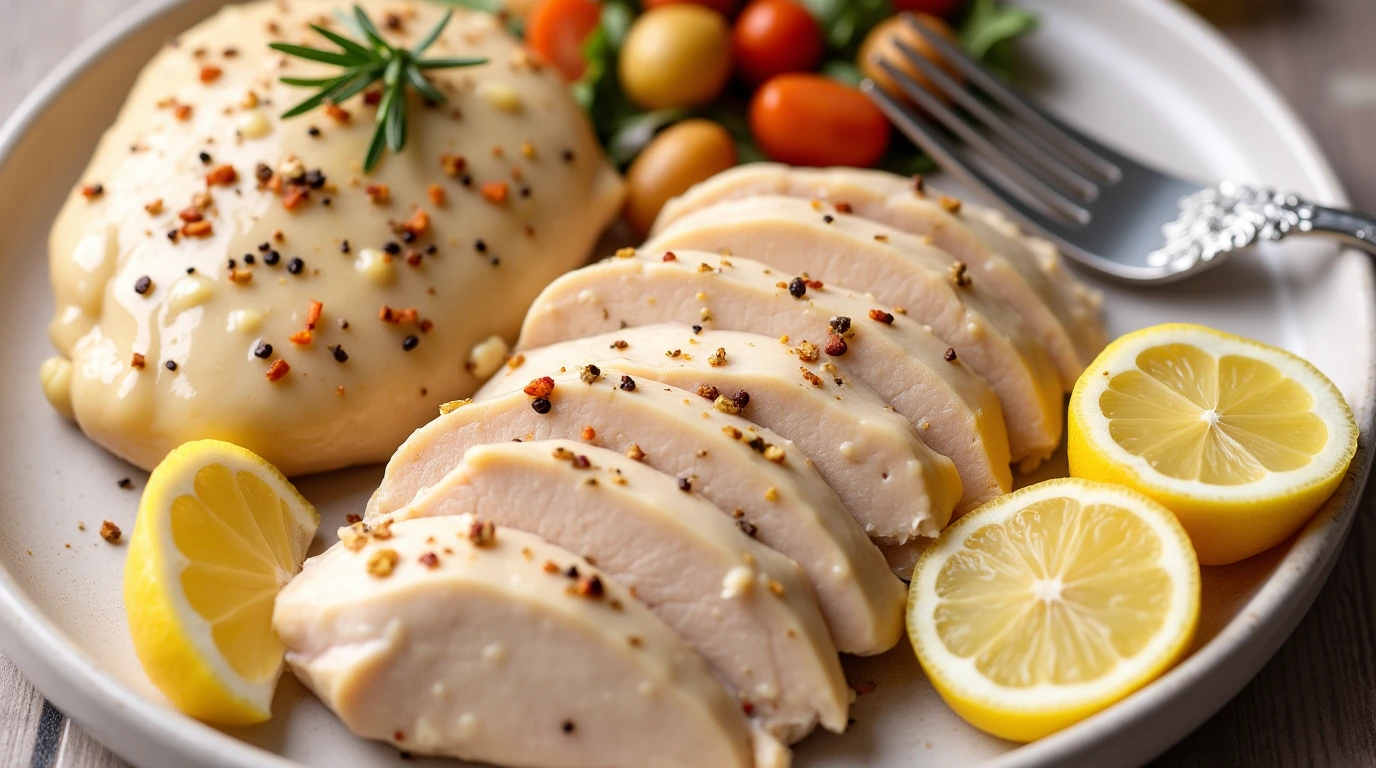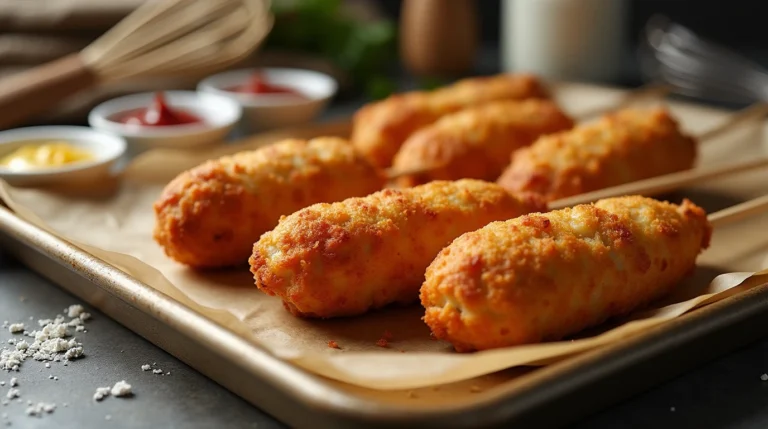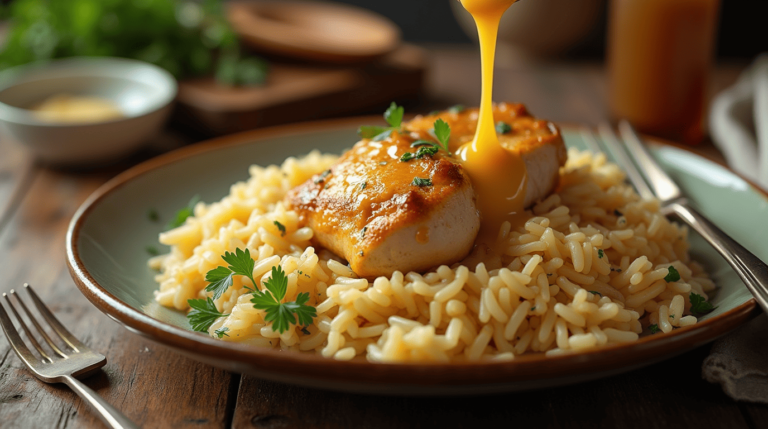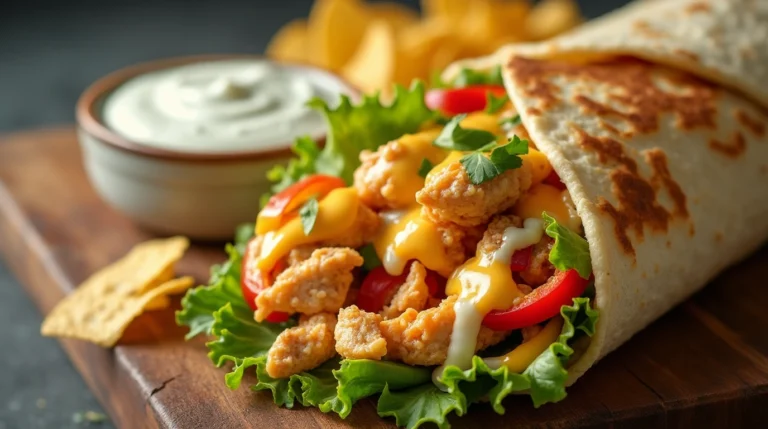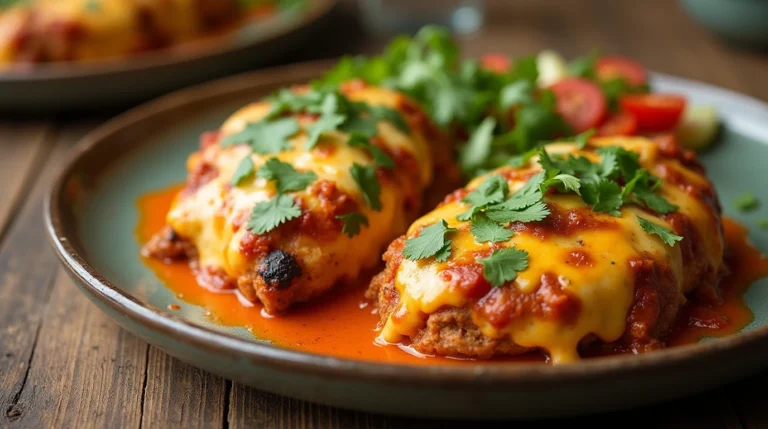Juicy Baked Chicken Breast Recipe
When it comes to crafting the perfect meal, a juicy baked chicken breast stands out as a culinary cornerstone. It’s versatile, nutritious, and pairs well with almost anything, making it a must-have in your recipe arsenal. Yet, the challenge of baking chicken breast without it turning into a dry, unappetizing dish is one many cooks face. This recipe holds the solution to that struggle, ensuring tender, flavorful bites every single time.
Table of Contents
The Secret to Juicy Chicken Breasts
Choosing the Right Cut: Why Size and Thickness Matter
Not all chicken breasts are created equal. Larger, uneven cuts often cook unevenly, leaving some parts dry while others remain undercooked. Opt for evenly sized cuts or trim and pound them to a consistent thickness. This simple step ensures uniform cooking and locks in moisture.
The Science Behind Keeping Chicken Moist and Tender
Chicken loses its juiciness when overcooked, as the proteins tighten and squeeze out the natural juices. Brining, marinating, and cooking at the right temperature are key to keeping the fibers relaxed and retaining the moisture that makes every bite delectable.
Ingredients You’ll Need
A Simple Yet Flavorful List of Pantry Staples
This recipe leans on simplicity. You’ll need:
- Boneless, skinless chicken breasts
- Olive oil or melted butter
- Salt, pepper, and garlic powder
- Paprika for a smoky touch
- Lemon juice for brightness
Optional Add-Ons to Customize Your Chicken
Take your flavors up a notch with ingredients like fresh herbs (rosemary or thyme), crushed red pepper for heat, or honey for a hint of sweetness. Personalize it to your taste!
Prepping Your Chicken Breast for Perfection
The Importance of Trimming and Pounding for Even Cooking
Remove any excess fat or tendons for a cleaner bite. Then, use a meat mallet or rolling pin to pound the chicken to an even thickness. This not only ensures uniform cooking but also allows flavors to penetrate more effectively.
How to Marinate for Maximum Flavor
Combine your ingredients in a resealable bag or shallow dish, ensuring the chicken is fully coated. Let it sit for at least 30 minutes or, for deeper flavor, overnight in the refrigerator.
The Game-Changing Marinade
Ingredients for a Marinade That Guarantees Juiciness
A balanced marinade combines acidity (like lemon or vinegar) to tenderize, fat (like olive oil) to add moisture, and seasonings for flavor. This trifecta transforms your chicken into a savory delight.
Tips for Marinating: Timing and Techniques
Avoid over-marinating; too much acid can break down proteins, resulting in a mushy texture. Always marinate in the fridge to prevent bacterial growth and flip the chicken halfway through for even absorption.
Baking Basics: Setting the Stage
The Ideal Oven Temperature for Baked Chicken
Set your oven to 375°F (190°C). This temperature is hot enough to cook the chicken through without drying it out, striking the perfect balance between speed and moisture retention.
Choosing the Right Baking Dish for Best Results
A shallow, oven-safe dish allows the chicken to bake evenly. For extra juiciness, consider lining the bottom with a layer of sliced onions or citrus.
The Perfect Baking Process
How to Ensure Your Chicken Stays Moist During Baking
Brush the chicken with olive oil or butter before baking to lock in moisture. Baking with a small amount of broth or water in the pan can also create a steamy environment.
Covering vs. Uncovered: Which Method Works Best?
Covering the dish with foil during the first half of baking helps retain moisture. For a golden, slightly crisp top, remove the foil for the last 10 minutes.
How to Know When It’s Done
Internal Temperature Guidelines for Perfectly Cooked Chicken
Use a meat thermometer to check for doneness. The internal temperature should reach 165°F (74°C). Insert the thermometer into the thickest part for accuracy.
Signs Your Chicken Is Overcooked and How to Avoid It
Dry, stringy chicken is a telltale sign of overcooking. Set a timer and check early to ensure you don’t miss that sweet spot of juiciness.
Serving Suggestions and Pairings
Side Dishes That Complement Juicy Baked Chicken Breast
Pair your chicken with roasted vegetables, mashed potatoes, or a refreshing side salad. A creamy garlic sauce or chimichurri can elevate the flavors further.
Ideas for Turning This Recipe Into a Full Meal
Slice the chicken over a bed of pasta, tuck it into tacos, or layer it in a hearty sandwich. The possibilities are endless.
Troubleshooting Common Issues
What to Do if Your Chicken Turns Out Dry
Don’t panic! Serve it with a flavorful sauce, or shred it and incorporate it into a soup or casserole to salvage the dish.
How to Fix Under-Seasoned Chicken After It’s Baked
Sprinkle a finishing touch of salt, fresh herbs, or a squeeze of lemon juice to enhance the flavors post-baking.
Storing and Reheating Leftovers
The Best Ways to Store Your Baked Chicken
Place leftovers in an airtight container and store them in the refrigerator for up to 3 days or in the freezer for up to 3 months.
Reheating Tips to Keep the Chicken Juicy the Second Time Around
Reheat gently in the oven with a splash of broth or water, covered with foil, to prevent it from drying out. Microwaving works too, but use lower power settings.
Creative Variations to Try
Spicy, Sweet, or Herby Twists on the Original Recipe
Try a Cajun-spiced version, a honey mustard glaze, or a Mediterranean-style marinade with olives and feta for something new.
Using Baked Chicken Breast in Salads, Sandwiches, and Wraps
Dice it into a Caesar salad, slice it for a hearty club sandwich, or shred it for a protein-packed wrap.
Conclusion
With its simplicity, adaptability, and unmatched juiciness, this baked chicken breast recipe is sure to become your kitchen staple. Perfect for busy weeknights or special dinners, it’s a dish that brings comfort and satisfaction to every bite. Give it a try and share the joy with those you love!

